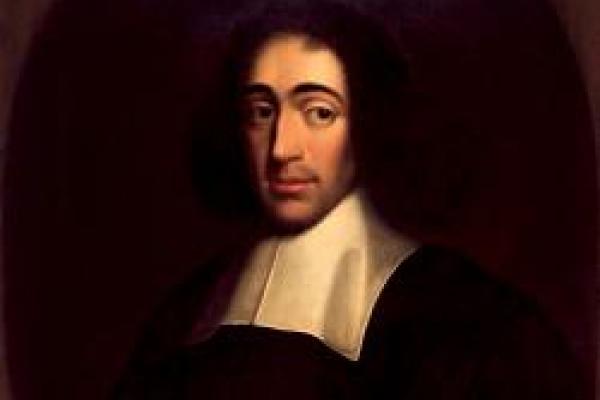
Sunday, October 28 (LYJCC, 1125 College Ave, Bexley)
7:00pm Steven Nadler: Why Was Spinoza Excommunicated?
In July, 1656, Baruch Spinoza was banned from the Portuguese-Jewish community of Amsterdam. But the circumstances surrounding his excommunication remain somewhat mysterious. The official documents mention only his “abominable heresies” and “monstrous deeds”. But what were these heresies and monstrous deeds? In this lecture, we will look at the banning of Spinoza as a way to introduce some of the main themes of this radical thinker’s philosophy.
Monday, October 29 (347 University Hall, OSU)
9:45 Coffee & Welcome
10:15 Jacob Adler: Spinoza Reads Delmedigo: Inspiration from a Philosophizing Sage
The works of Joseph Solomon Delmedigo (1591-1655) are thought by many to have influenced Spinoza. A little-noted passage in Delmedigo’s work, Matsref la-hokhmah (“Crucible of Wisdom”) contains another apparent example of such influence. The passage, a quotation from an unnamed source—identified only as a “philosophizing sage”—contains radical opinions on the Bible and theology, many of which bear a close resemblance to Spinoza’s thoughts on those same topics. Delmedigo, it should be noted, abjures the opinions in question, yet presents them all the same, refusing to brand their author as a heretic. It is argued that the passage in question did in fact influence Spinoza’s Tractatus Theologico-Politicus and in any case constitutes an important precursor to Spinoza’s work.
12:00 LUNCH
1:30 pm Michael LeBuffe: Spinoza on Miracles
"The psychological theory of Spinoza’s Ethics yields a surprising basis for a central claim of his Theological-Political Treatise: the belief in miracles is essential to religion as a source of obedience in society. The same theory reveals Spinoza’s peculiar and dangerous form of elitism."
3:30 pm Steven Nadler: The Lives of Others: the Ethics of Spinoza's "Ethics"
Readers of Spinoza's Ethics, his philosophical masterpiece, often go only so far as Parts One and Two, concentrating on the metaphysics of God and his account of human nature. They are thus left wondering why the work is called "ethics", especially when they also learn that Spinoza's account of human motivation is a thoroughgoing egoism, whereby no individual does anything except insofar as s/he believes it to be in his/her own best interest. In Part Four, Spinoza very briefly discusses how, nevertheless, his uncompromising egoism about human action still justifies ways of treating other human beings that we would intuitively recognize as "ethical". In this lecture, we will consider Spinoza's highly idiosyncratic arguments for why the "virtuous" person (successful in the rational pursuit of self-interest) will act in benevolent ways toward others.
Please contact Tamar Rudavsky (rudavsky.1@osu.edu) or Paige Bailey (bailey.554@osu.edu) with questions.
